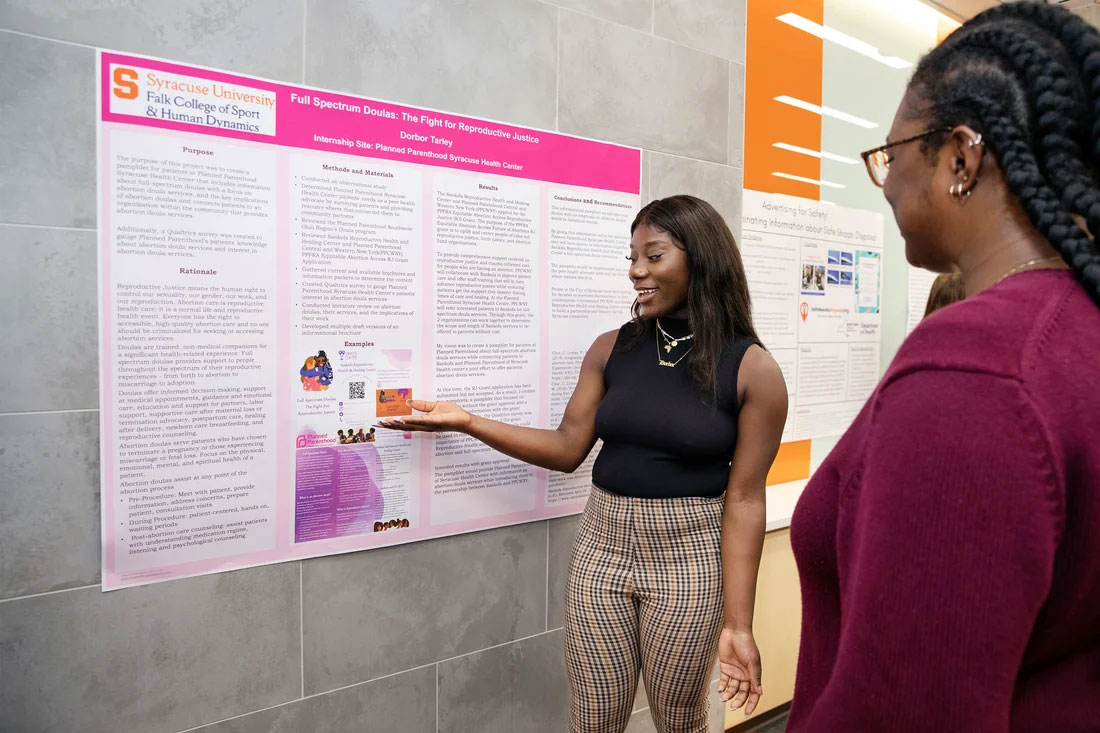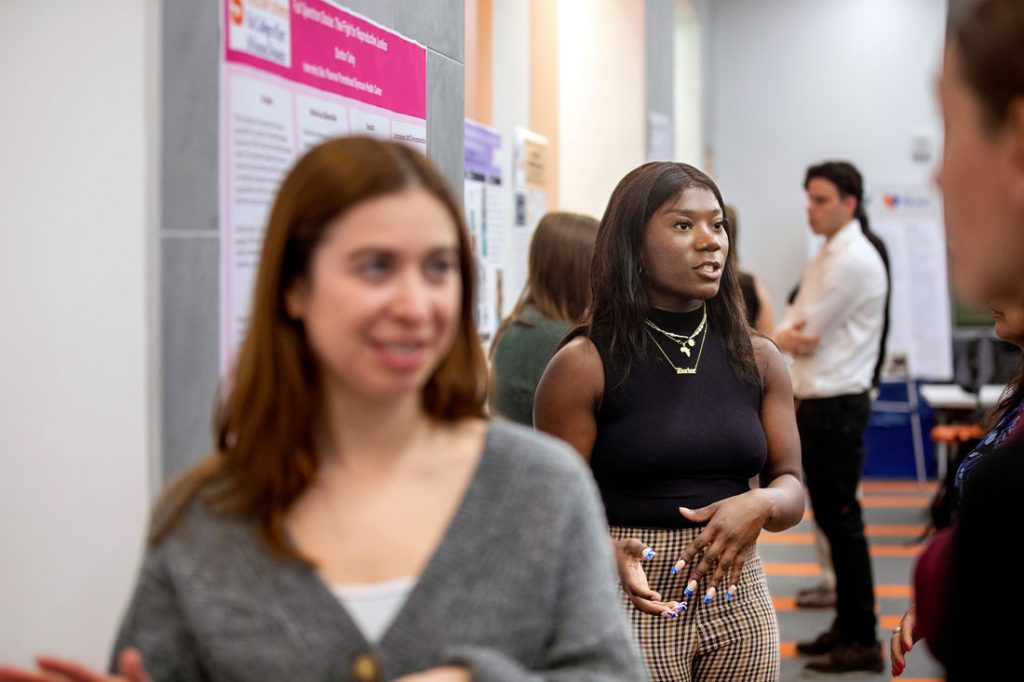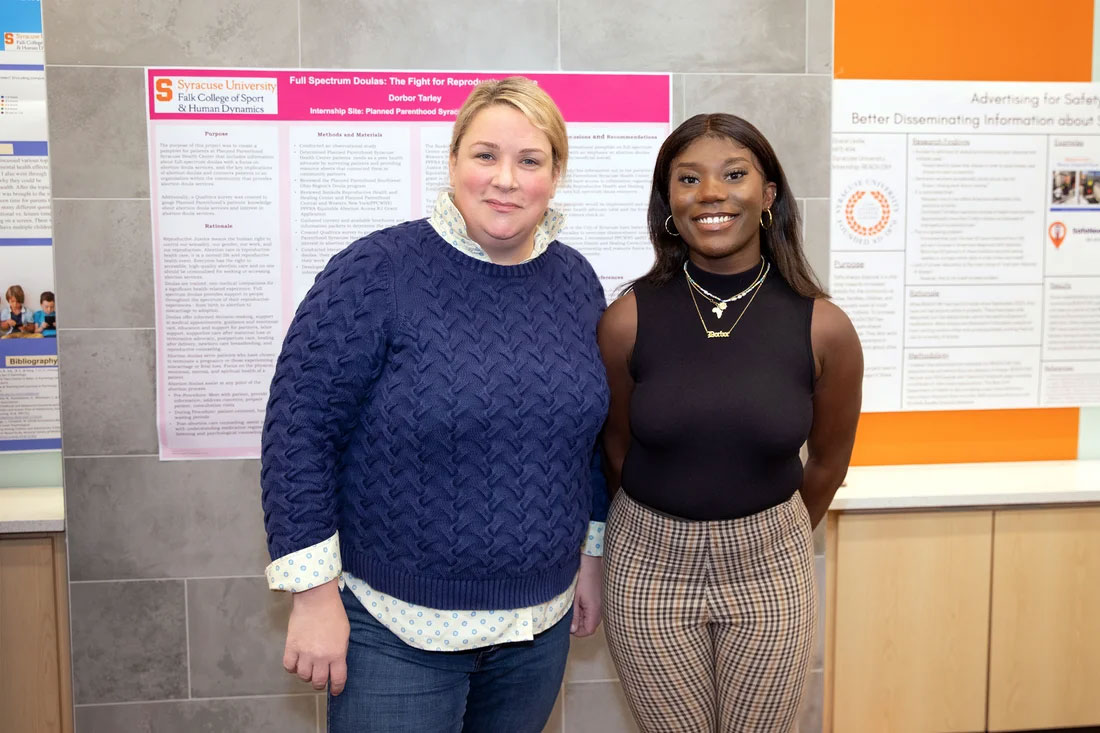
When Tarley made the decision to major in human development and family science at Syracuse University, she began a journey that united her interest in medicine with her determination to address health care disparities affecting historically marginalized populations. Tarley has her sights on medical school, but will first continue her academic journey in a public health master’s program at John Hopkins University, starting this fall. Because ultimately, Tarley aims to address inequity in health care at both systemic and individual scale.
Telling Research
While still in high school, Tarley learned that Black women in the United States are three- to four-times more likely to die during childbirth or after delivery than white women. This statistic alarmed her and sharpened her focus—she knew she wanted to work toward reducing this disparity. And, recognizing the broad range of issues underscoring the statistic, Tarley chose the human development and family science program in Falk College for its interdisciplinary breadth. “It was the right program for me because it offered a premedical track which, in addition to the hard sciences, focused on the life course trajectory of humans and it gave me an opportunity to investigate health through the lens of psychology and sociology,” she says.

Funding from the Syracuse Office of Undergraduate Research and Creative Engagement (SOURCE) made it possible for Tarley to gather perspectives from 164 representatives of the general population. The results of her research showed survey takers registered more concern for and would more readily recommend medical intervention for white women than Black women showing the same symptoms. This reveals, Tarley explains, how cultural perceptions of Black women are expressed in ways people may not even be aware of but which, with underlying health care practitioners’ decisions, can have very real consequences. “Implicit biases can lead to Black women not being believed or respected. And in health care settings, this manifests in delays in treatment, refusal of services and an overall lack of consideration for Black women’s bodily autonomy,” she says.
Tarley presented her results at multiple conferences and conventions, including representing the University at the ACC Meeting of the Minds Conference in 2021.
Addressing the Bigger Picture
At Syracuse, Tarley discovered her passion for research. She attributes this to the encouragement she received from professors and mentors like Mulvaney. “Professor Mulvaney taught me to ‘look for the gaps,’” she explains. “Questioning your sources and looking for what’s not yet in the data can reveal where there’s the opportunity and need for more investigation.”

Individual Action Matters
Tarley sees the growth of community-centered health care as an important area of positive change for Black women’s maternal health. “Black women in the reproductive health rights and justice movement are developing health care centers rooted in feminist thought around concepts of reproductive justice,” she says. “And the way control, regulation and stigmatization of female fertility has impacted Black women disproportionately.”
Tarley’s academic journey at Syracuse led to a recalibration of her path—to now include the pursuit of education in public health and medical school—and Tarley is passionate about where she is headed. “I realized that to really address inequities in Black women’s reproductive health care and maternal health, I wanted to be in a position where I could help make systemic change,” she says. “As a practitioner, one can have a huge impact directly on individual women and families, but to really help my future patients who are dealing with inequities, I’m going to need to have a voice impacting public health policy, as well.”
Tarley draws motivation from her conviction that individual effort can lead to big social change. “I’ve seen how community organizing and activism work,” she says. “I know that if you fight for something, and put in the right resources, and are persistent enough—you can make important changes happen.”
An SU Story by Sarah H. Griffin originally published on June 28, 2022
